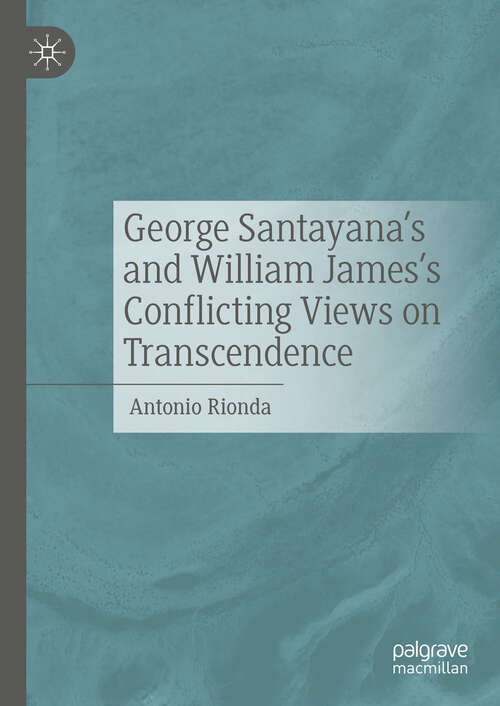George Santayana's and William James's Conflicting Views on Transcendence
By:
Sign Up Now!
Already a Member? Log In
You must be logged into Bookshare to access this title.
Learn about membership options,
or view our freely available titles.
- Synopsis
- This book studies the philosophical work of George Santayana and the nature of his work's relationship with that of American philosopher William James. James is consistently dismissive of “the ‘all is vanity’ state of mind,” which arguably represents the opposite of America’s activist, progressive ideals. The Spanish Santayana made the overcoming of vanity, or detachment central to his “vital philosophy,” which he had to gradually “disentangle” from the forces he found at work in America. This book, then, traces Santayana’s intricate response to James, from its earliest expression in Interpretations, to his later Realms. Rather than attempt to arrive at a final interpretation of either one’s philosophy, Antonio Rionda emphasizes what James refers to as the hotspot of each one’s thinking: James’s is best described as positivistic Existentialism, and Santayana’s as phenomenological intuitionism. Santayana’s post-Hegelian approach to doing philosophy allows for him to incorporate James’s major insights into his own thinking. The problem of how psychology relates to philosophy led Santayana to posit literary psychology as an alternative to its scientific variety, which once disentangled from James’s psychologism, represents the greatest virtue of James’s thinking.
- Copyright:
- 2024
Book Details
- Book Quality:
- Publisher Quality
- ISBN-13:
- 9783031666018
- Related ISBNs:
- 9783031666001
- Publisher:
- Springer Nature Switzerland
- Date of Addition:
- 11/26/24
- Copyrighted By:
- The Editor
- Adult content:
- No
- Language:
- English
- Has Image Descriptions:
- No
- Categories:
- History, Nonfiction, Philosophy
- Submitted By:
- Bookshare Staff
- Usage Restrictions:
- This is a copyrighted book.
